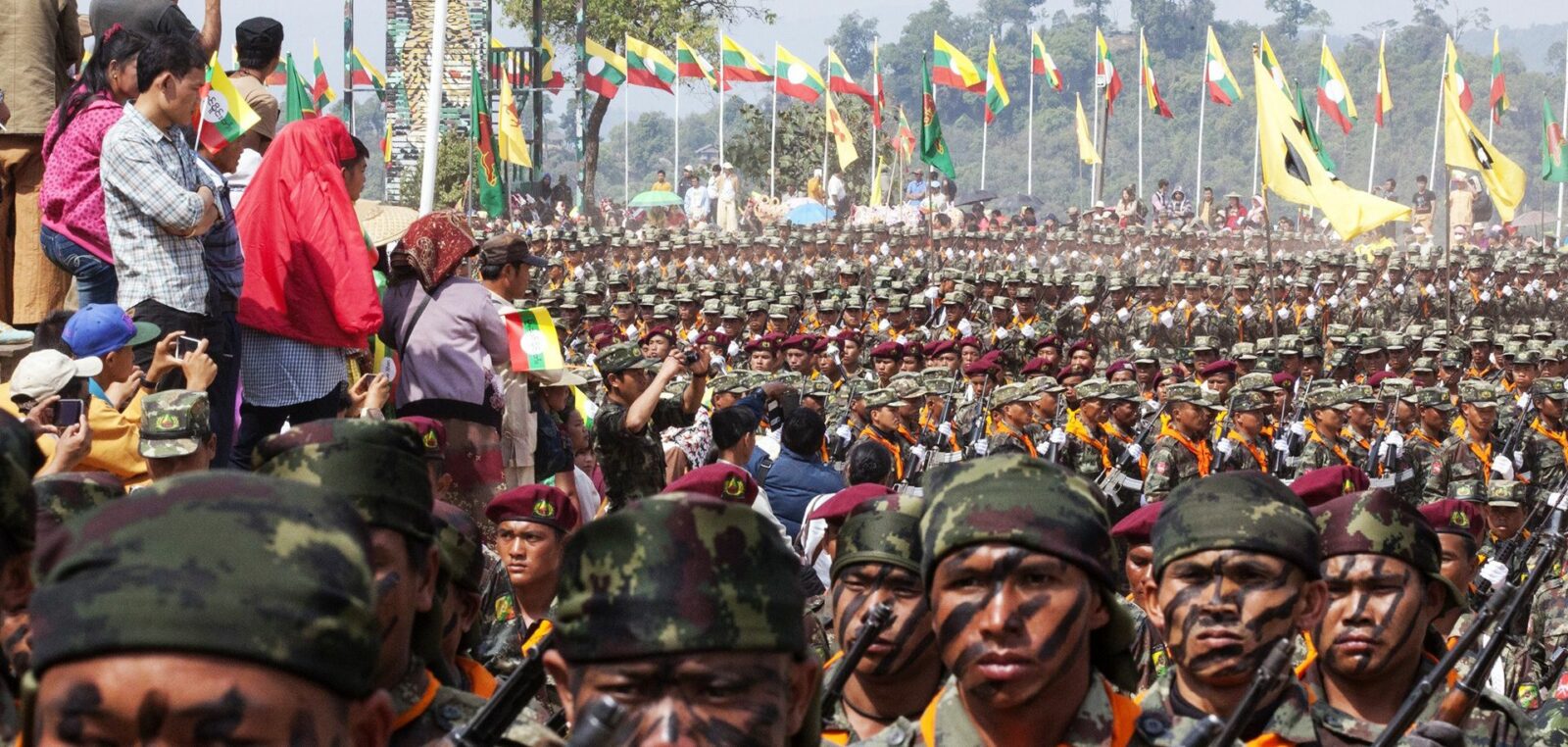But tensions are rising…
But tensions are rising…
By Mehmet Enes Beşer
No regime anywhere in the world has yielded such political resilience as Myanmar’s military regime. In different forms and with changing institutional forms throughout half a century, the Tatmadaw has established itself as the dominating force in the country’s political life. Since socialist days under General Ne Win up to supposed “disciplined democracy” in 2021 and the coup, Myanmar’s military leaders have clung to state authority despite their rule yielding no sustained economic progress, inclusive growth, or political acceptability. Their resilience is not happenstance. It is the product of a calculus-based, systematic, and often brutal sequence of survival strategies under authoritarianism—coercion, fragmentation, coaptation, and geopolitical hedging in an unexpectedly stable combination.
It is not the Myanmar junta’s ability to achieve outcomes that make it superior to other Southeast Asian authoritarian regimes, but its cleverness at holding on. While other governments have fallen to popular uprising or economic collapse, Myanmar’s military has mastered the art of ruling through weakness—seeding division, inciting terror, and sowing dissent to the extent that resistance to their dominance seems impossible. They owe it not to general assent or triumph with progressive advancing but to conscious political adeptness.
One of the chief means employed by the junta has been the manipulation of Myanmar’s complex ethnic composition. Rather than pursuing national unity, the military has employed synchronized ratcheting up of ethnic resentments to divide the opposition and legitimize centralized control. It is most evident in the Rohingya and other minorities whose persecution has been leveraged to construct a perception of national siege and to support the Tatmadaw’s self-appointed role as guardian of territorial integrity. Attack and co-opted in return, ethnic armed groups (EAOs) are captive to the regime’s short-term agenda. By doing so, the military transforms Myanmar’s diversity as a fount of democratic pluralism into an apparatus of planned fragmentation.
Another time-honoured strategy has been the posture of external threat. Myanmar’s generals have historically resorted to the fear of foreign intervention—from Western imperialism to modern human rights pressure—as cover for their control. This siege thinking sustains nationalist feeling and discredits pro-democracy voices as foreign hands. It allows the junta to characterize dissent, not as engagement in public life, but as insurrection. This results in a political culture where repression is made normal in the name of sovereignty, and emergency is normalized as the permanent mode of rule.
Domestically, the military has entered into unspoken bargains with elites—both in the civilian administration and the business community. The emergence of the military-born oligarchy has ensured economic privilege is wedded to the regime stability. Crony capitalism flourishes, generating loyalty from key stakeholders while becoming solidified in economic inequality. Stability assurances are offered to foreign investors, particularly the neighboring countries like China, Thailand, and India, whose endorsement or neutrality is purchased with infrastructure contracts, frontier management cooperation, and access deals into natural resources. These local connections protect the junta from global pressure and provide it with a lifeline even in the face of sanctions and diplomatic estrangement.
The same tactics that extended military rule for decades are now meeting growing resistance. Myanmar has experienced a record societal awakening since the February 2021 coup. The breadth and profundity of anti-coup sentiment have transversed ethnic, generational, and economic lines. From student movements and urban elites to the people’s civil society and ethnic militias, the siren song of civilian-led tomorrow has been heard in every nook and cranny of the country. The Civil Disobedience Movement (CDM), people’s defense forces, and the formation of the National Unity Government (NUG) are not acts of rebellion per se—those acts are a sign that the old script of fear and polarization is coming to an end.
This opposition is not only reactive, but also prophetic. It is a shared desire not only to reverse the coup, but to bring down the institutions that have facilitated decades of military rule. It is driven by anger, of course, but also by hope: for federalism, for inclusivity, and for democracy. People in Myanmar are no longer demanding reform under a military-dominated system; they are demanding an end to military rule.
However, the path ahead is treacherous. The military has more firepower, administrative clout, and huge economic muscle to wield. Regional support for the pro-democracy movement is lukewarm and ASEAN’s style of consensus-based diplomacy has put no pressure on the junta. World attention, diluted by happenings elsewhere, has not yet gained momentum. All these threaten the risk of prolonged war and human tragedy.
Conclusion
Myanmar’s military rule has endured so long because it discovered how to rule not by triumph but by manipulation—identity, fear, coalitions, and geopolitics. It has mastered the dark arts of authoritarian resiliency, building a regime that thrives not on consensus but on divisions. It has reinvented itself, remade its institutions, and calibrated its rhetoric time and again over more than half a century, and remained faithful to the same hard center: military control of civilian life.
But now, for the first time in a generation, that hegemony is threatened by one plausible threat. The Burmese are not merely demanding more than reform or election—they are demanding an end. That generation who long ago consented to the inevitability of the military regime today envisions a nation where such is impossible. This is the junta’s weakest link—not foreign pressure nor elite disillusionment, but a people who will not be cowed.
Until and unless the future Myanmar is envisioned anew, it will not be on the military’s terms of voluntarily relinquishing power. It will be because the people—trans-ethnic and trans-ideological—will refuse to be defined by yesterday. The world must listen: authoritarianism only continues so long as silence, not the collective voice of a people who have determined they will no longer wait to be free.

















Leave a Reply